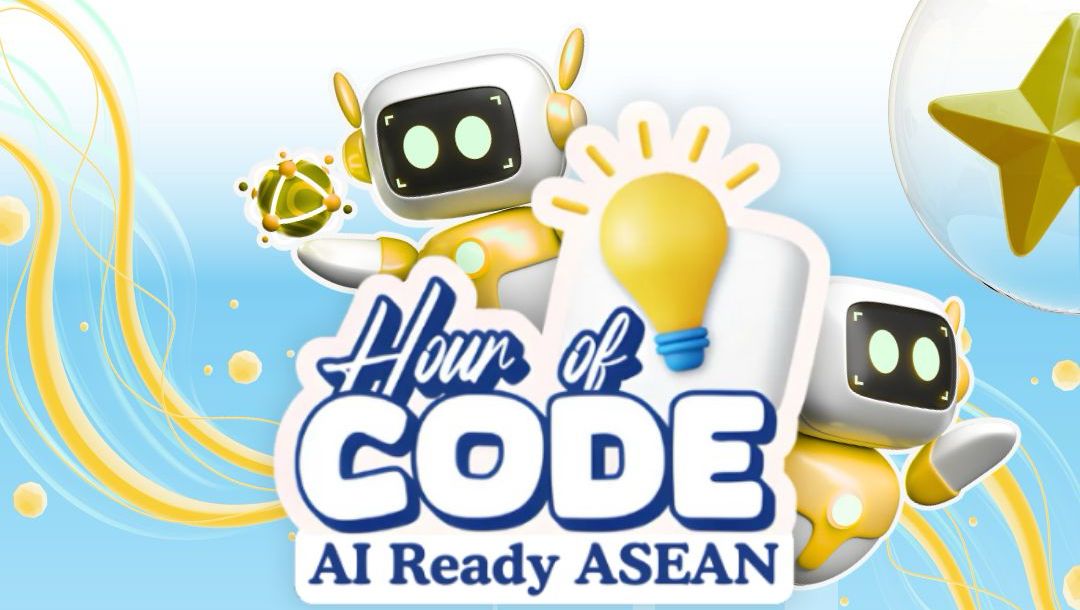
By Dean Aubrey Caratiquet
In Sunday’s “Hour of Code” session led by the Association of Southeast Asian Nations Youth Organization (AYO) – Philippines, Filipino youth actively participated in the coding workshop where they learned valuable knowledge and insights on artificial intelligence (AI) and coding, equipping them with the skills needed to thrive in the digital age.
The event opened with introductory remarks from former DICT Undersecretary for ICT Atty. Jocelle Batapa-Sigue, No Code-PH Executive Director Crystal Camarao, and Country Director for Global AI-Council Philippines Catherine Jalandoni, who reminded the forum’s participants of their role as stewards of digitalization.
AI in focus
Before proceeding to the workshop proper, Analytics and Artificial Intelligence Association of the Philippines (AAP) Deputy Executive Director Nathaniel Samiley imparted his knowledge on AI and the vast potential that it brings to the table for the betterment of the country.
Samiley began by acknowledging the growing use of AI assistants such as ChatGPT, Google Gemini, and Microsoft’s CoPilot among students, lending them a helping hand in doing their projects, researches, and other tasks.
He further expounded the conversation on AI by touting Large Language Models (LLMs), which are powering the aforementioned chatbots, as the key towards transforming the ways that people accomplish their tasks.
Samiley likewise cited four areas of tasks wherein AI can be used for either automation or augmentation, according to the World Economic Forum:
- Higher potential for automation
- Higher potential for augmentation
- Lower potential for exposure (automation or augmentation)
- Lower potential for exposure (automation or augmentation)
He noted the importance of upskilling vis-à-vis increasing usage and adoption of AI: “There is that shift that we are talking about when it comes to potential for augmentation or automation by AI. So now, you have to identify which skills or tasks you can do [that cannot be replicated by] AI—you have to build yourself on that.”
He added further, “This is a wake-up call for everyone, for the youth especially. You don’t have the luxury to be able to wait for certain things, and you have to identify which skills—most especially communication—would be your unique trait on why you need to be hired for specific roles or positions if you are applying to the industry.”
Samiley wrapped up his keynote speech by citing examples of governments making inroads towards embracing AI with open arms, including President Ferdinand R. Marcos Jr.’s earlier approval of the proposed National AI Upskilling Roadmap in the Philippines, as well as the perks that various industries reap from integrating machine learning into their operations.

PH youth as AI ‘caretakers’
The keynote remarks were followed by the workshop proper, in which master trainers Kim Davis de Leon, RL and Engr. Reign Jansen Silva divided the participants into breakout rooms, as the online attendees grasped indispensable information on how to integrate AI and coding into their respective workflows and daily lives.
This was followed by a closing message from INNOTECH Center Director Dr. Majah-Leah Ravago, who reminded the Filipino youth of their importance in facilitating responsible use of AI and coding practices.
Dr. Ravago told the young participants, “Growing up in a digital age, the youth across the ASEAN engage with technology earlier and more frequently than previous generations. But beyond access, what makes your role essential is how you choose to apply your skills. You are learning to code, to build, to collaborate, and to solve real-world problems.”
She further added, “Being AI-ready is not just about using technology, but using it wisely. It requires discipline, curiosity, and a commitment to learning that goes beyond shortcuts.This is where your leadership matters. AI can support progress, but only if guided by people who understand both its potential and its limits.”
The event culminated with a few words of wisdom from AYO – Philippines Program Manager Rosken Casiano, who advised the online participants to use AI ethically, responsibly, and with good intentions.
Casiano told Filipino youth, “AI should not replace the people, it must assist the people. But always remember that the usage of AI should always be ethical and responsible—ethical in a manner that it will not cause harm towards the people; responsible in a manner that it will not cause laziness or lack of productivity.”
He added, “It should not be the end. Ngayong araw, ‘yong mga natutunan niyo, dapat hindi dito natatapos. Ituro natin sa iba. Let other people embrace artificial intelligence.”
avds
